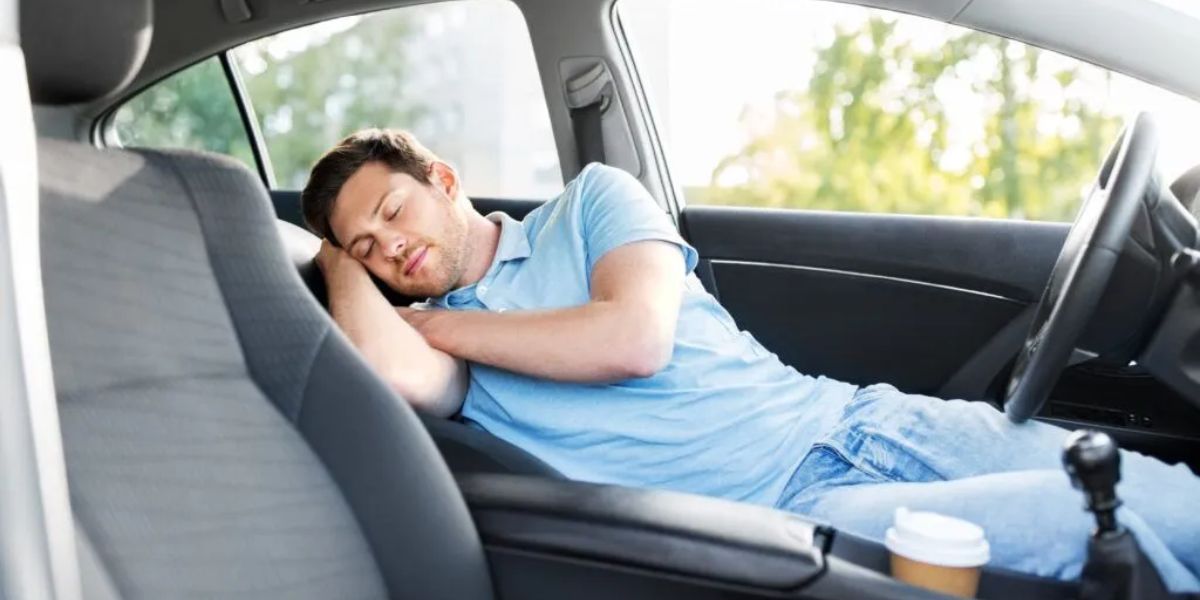As of July 2024, Kentucky residents and travelers must navigate new legal restrictions when it comes to sleeping in their vehicles. While the state does not impose a blanket ban, the recently enacted Safer Kentucky Act (HB 5) introduces strict limitations and penalties for those sleeping in unauthorized locations.
Statewide Regulations
No Complete Ban, But Stricter Rules
Kentucky does not prohibit sleeping in vehicles outright, but HB 5 categorizes sleeping in undesignated public or private areas as “unlawful camping.”
- First offense: Subject to a $250 fine.
- Repeat offenses: Classified as a Class B misdemeanor, which could lead to up to 90 days in jail and additional fines.
Public Roads and Parking Lots
- Sleeping in a legally parked vehicle on a public road or parking lot is permitted for up to 12 hours.
- Longer stays may attract enforcement under local ordinances.
Rest Area Rules
Kentucky’s highway rest areas allow short-term stops but impose restrictions:

- 4-hour limit within any 24 hours.
- Overnight parking is technically allowed but discouraged beyond the time limit. Enforcement varies depending on location.
- Trailers and RVs may not unhitch unless in an emergency.
Private Property Considerations
Parking and sleeping on private property without permission can lead to legal risks:
- Trespassing charges may apply.
- Kentucky’s “stand your ground” law permits property owners to use deadly force if they perceive a threat, adding a significant risk factor.
Local Enforcement Differences
The enforcement of these laws varies across different cities and rural areas:
- Lexington: Focuses on diversion programs and shelter referrals instead of citations.
- Rural areas: Stricter enforcement due to limited public resources.
- Louisville: As of August 2024, authorities have issued 11 citations and made four arrests under HB 5.
Safety and Best Practices
To avoid penalties, individuals sleeping in vehicles should take the following precautions:
- Use designated areas: Stick to rest stops within the time limit or obtain explicit permission on private property.
- Keep documentation accessible: Having vehicle registration and insurance readily available can prevent unnecessary suspicion.
- Check local ordinances: Some municipalities, like Covington, have additional restrictions, such as banning camping in parks after 9 PM.
Legal Context and Debate
The Safer Kentucky Act aligns with the 2024 U.S. Supreme Court ruling in Grants Pass v. Johnson, which upheld laws criminalizing public camping. While advocacy groups argue the law worsens homelessness, supporters claim it helps address “quality-of-life” crimes.
Key Exceptions
- Recreational campgrounds: State parks allow overnight stays with proper permits.
- Emergencies: Drivers too fatigued to continue may rest longer at highway rest areas, though this technically violates the 4-hour rule.
Conclusion
While sleeping in a vehicle remains legal in select situations, new restrictions and varied enforcement demand heightened awareness. Travelers and residents should familiarize themselves with the latest regulations to avoid fines or legal trouble.




